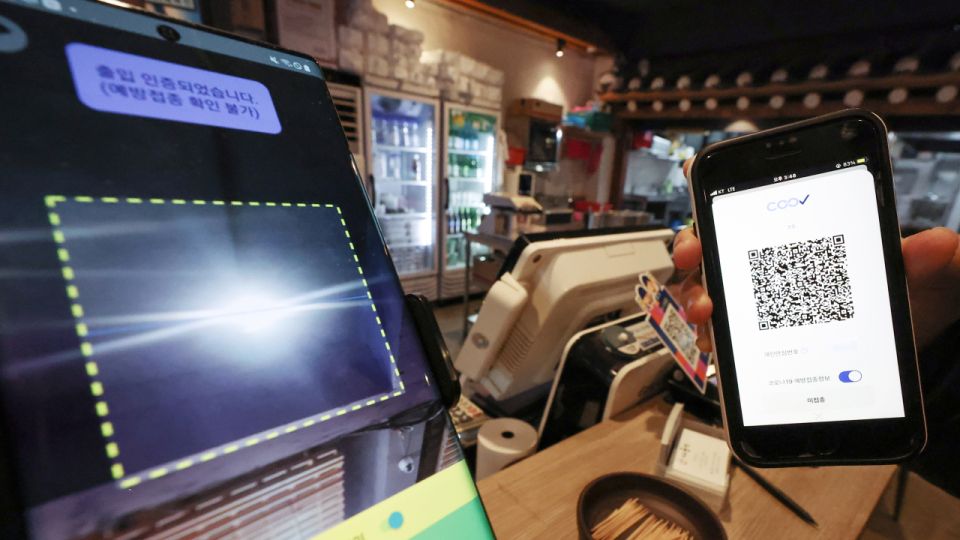January 5, 2022
A Seoul court on Tuesday afternoon temporarily blocked the vaccine pass mandate at educational facilities, saying the policy “seriously disadvantages people who are not vaccinated.”
Seoul’s administrative court has granted local community groups’ request for an injunction against the Ministry of Health and Welfare mandate requiring people to present proof of full vaccination or a recently taken negative PCR test result to enter public places.
Tuesday’s decision suspends the use of vaccine pass at these study places until a judgment on the merits of the case has been reached.
Ends don’t justify means
The court found that allowing unvaccinated people into places like cram schools, reading rooms and book cafes would not lead to a significant rise in the incidence of cases and hospital admissions. As such, exempting the use of vaccine pass there “would not adversely affect public interests,” the court said.
The court said, “Considering a growing proportion of fully vaccinated patients with breakthrough infections, the risk of spreading COVID-19 could not be said to be significantly greater in people who are not vaccinated so as to justify restricting their visits to these facilities.”
According to the official statistics from the second week of December last year, when the outbreak was severe, the infection rate among unvaccinated people was 0.15 percent while that among fully vaccinated people 0.7 percent, the court said.
Based on these numbers, the court viewed that the difference in the risk of infection was not sufficient to justify the mandate.
It recognized that COVID-19 vaccines were highly protective against hospitalizations and deaths, but pointed out that these places were usually frequented by younger people who were at lower risk of severe disease from COVID-19.
“It is questionable whether there are sufficient grounds for imposing such measures that directly restrict educational freedoms,” it said.
Serious infringement of individual rights
The court said that mandating vaccine passes at these places may cause irreparable damage to people’s lives due to the ways it restricts their freedoms in the realm of education.
People who are preparing for school entrance exams and other tests necessary for employment, for example, may suffer significantly as a result, and the policy would “amount to a direct infringement of their freedoms to choose an occupation and also that of education,” the court said.
The rights to pursuit of happiness and freedom of occupation are protected by the Constitution, the court said, and that all Koreans are entitled to a choice in and pursuit of education.
Again, citing the Constitution, the court said that all citizens, as equal before law, should not be discriminated against across all aspects of daily life. By mandating people to present a proof of vaccination or a negative test result to access places that can be deemed essential, the policy “unfairly discriminates against people who have not been completely vaccinated.”
The court said that the vaccine pass policy indirectly forces a personal choice — of whether or not to get vaccinated against COVID-19 — and therefore denies people the right to self-determination.
People’s autonomy and right to self-determination over their own body “should be respected and cannot be disregarded,” the court said.
Government to appeal
On the court decision, the Ministry of Health and Welfare said it would file an appeal with a higher court “immediately.”
The ministry said in a message to reporters in the evening the same day that, “Given that the small minority of unvaccinated adults accounts for more than half of patients becoming hospitalized or dying, the use of the vaccine pass is not only necessary, it needs to be expanded in order to protect the health of people who remain unvaccinated.”
The ministry said it would consult with the Ministry of Justice to “expedite the proceedings” with the court.
Starting this week a more expansive vaccine pass is coming into effect at a wide array of locales, from cafes, restaurants and movie theaters to libraries and grocery stores.
Subjecting minors 12 and up to the pass system has been pushed back one month to March, from the initially planned February.


